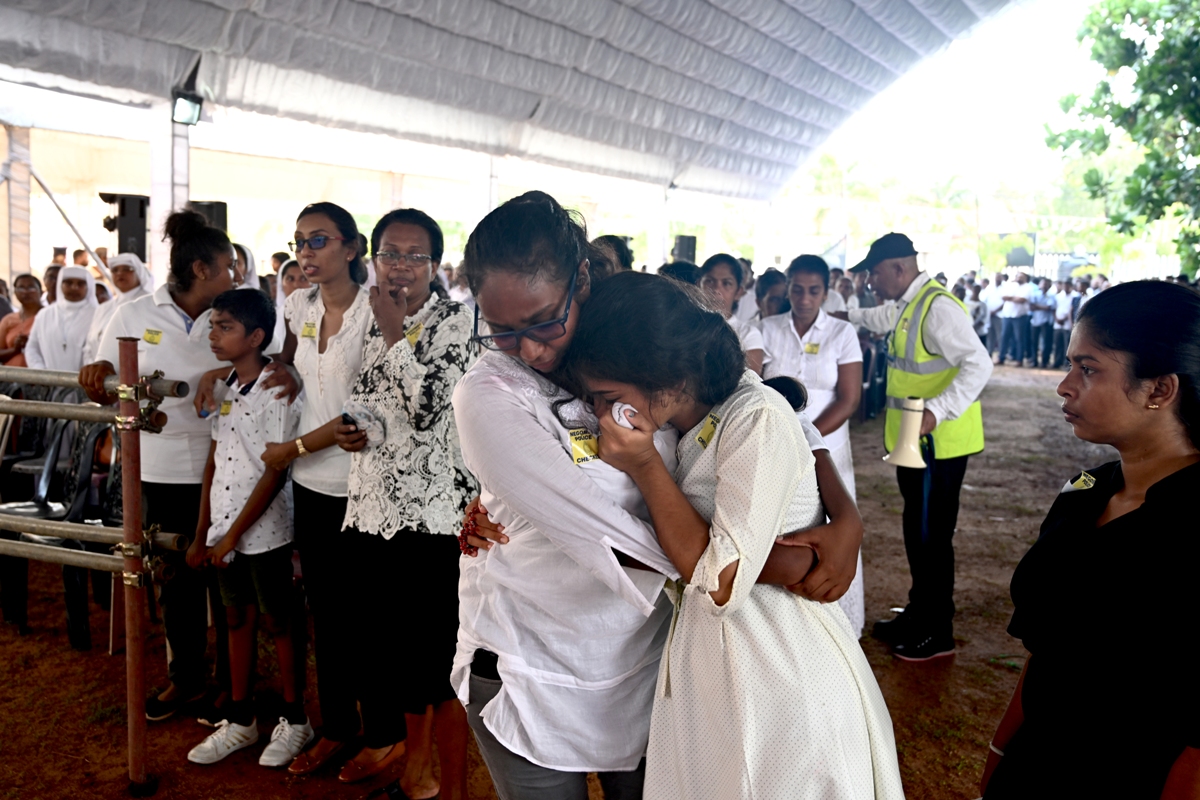The Islamic State on Tuesday claimed responsibility for Sri Lanka bombings that killed 310 people and left over 500 injured.
The group made its claim through the AMAQ news agency, which is the official mouthpiece of the terror organisation.
Advertisement
“The perpetrators of the attack that targeted nationals of the crusader alliance and Christians in Sri Lanka the day before yesterday were Islamic State fighters,” read a translation of the statement, done by BBC journalist Faisal Irshaid.
The “crusader alliance” refers to the US-led coalition forces fighting the Islamic State.
The group, however, did not provide any evidence connecting it to the dastardly attack on three churches and three high-end hotels on Easter Sunday.
The Islamic State, which once controlled half of both Syria and Iraq (88,000 sq km of land), was defeated in by coalition forces in March this year.
Their last bastion, Baghuz in Syria, fell to Kurdish-led Syrian Democratic Forces (SDF) late in March. Yet experts know that the threat from the barbaric terror group, which almost wiped out the Yezidi race, is far from over.
Earlier on Monday, the Sri Lankan government said that it suspected a local Islamist extremist group called National Thowheeth Jama’ath (NTJ) to be behind the deadly suicide bomb blasts, adding that it was investigating whether the group had “international support.”
Reports state that attackers had planned to target a fourth Sri Lanka hotel on Sunday but it failed.
On Sunday, a total of seven suicide bombers carried out a series of eight devastating blasts that tore through churches and luxury hotels in Sri Lanka.
The blasts targeted St Anthony’s Church in Colombo, St Sebastian’s Church in the western coastal town of Negombo and Zion Church in the eastern town of Batticaloa around 8.45 am (local time) as the Easter Sunday mass were in progress.
Explosions were also reported from three five-star hotels — the Shangri-La, the Cinnamon Grand and the Kingsbury in Colombo.
Reports state that Sri Lankan police have so far arrested 40 people in connection with the suicide blasts.
Though all arrested in connection with the incident are locals, the country’s intelligence suspects a hand of international terrorist organisations in the attack.
An initial probe shows it was “retaliation for Christchurch,” the country’s deputy defence minister said Tuesday.
“The preliminary investigations have revealed that what happened in Sri Lanka (on Sunday) was in retaliation for the attack against Muslims in Christchurch,” state minister of defence Ruwan Wijewardene told parliament.
Fifty people were killed in shooting attacks on two mosques in the New Zealand city of Christchurch on 15 March.
Ten Indians were among those who were killed in the blasts.
“Regret to confirm the deaths of two more Indian nationals Mr A Maregowda and Mr H Puttaraju in the blasts in Sri Lanka on Sunday, taking the total number of Indian deaths in the tragedy to 10 as of now,” Sushma Swaraj tweeted.
Among the dead were at least 30 foreigners – all in Colombo. Reports suggest that the foreign nationals killed in attack include British, Dutch, Americans and Japanese among others.
A nationwide emergency was declared from Monday midnight by President Maithripala Sirisena.
“The government has decided to gazette the clauses related to prevention of terrorism to emergency regulation and gazette it by midnight,” the president’s office said in a statement.
On Tuesday, a three-minute silence was observed across Sri Lanka as part of the national mourning. Flags were lowered to half-mast on government buildings, and people bowed their heads and reflected silently on the violence that has caused international outrage.









